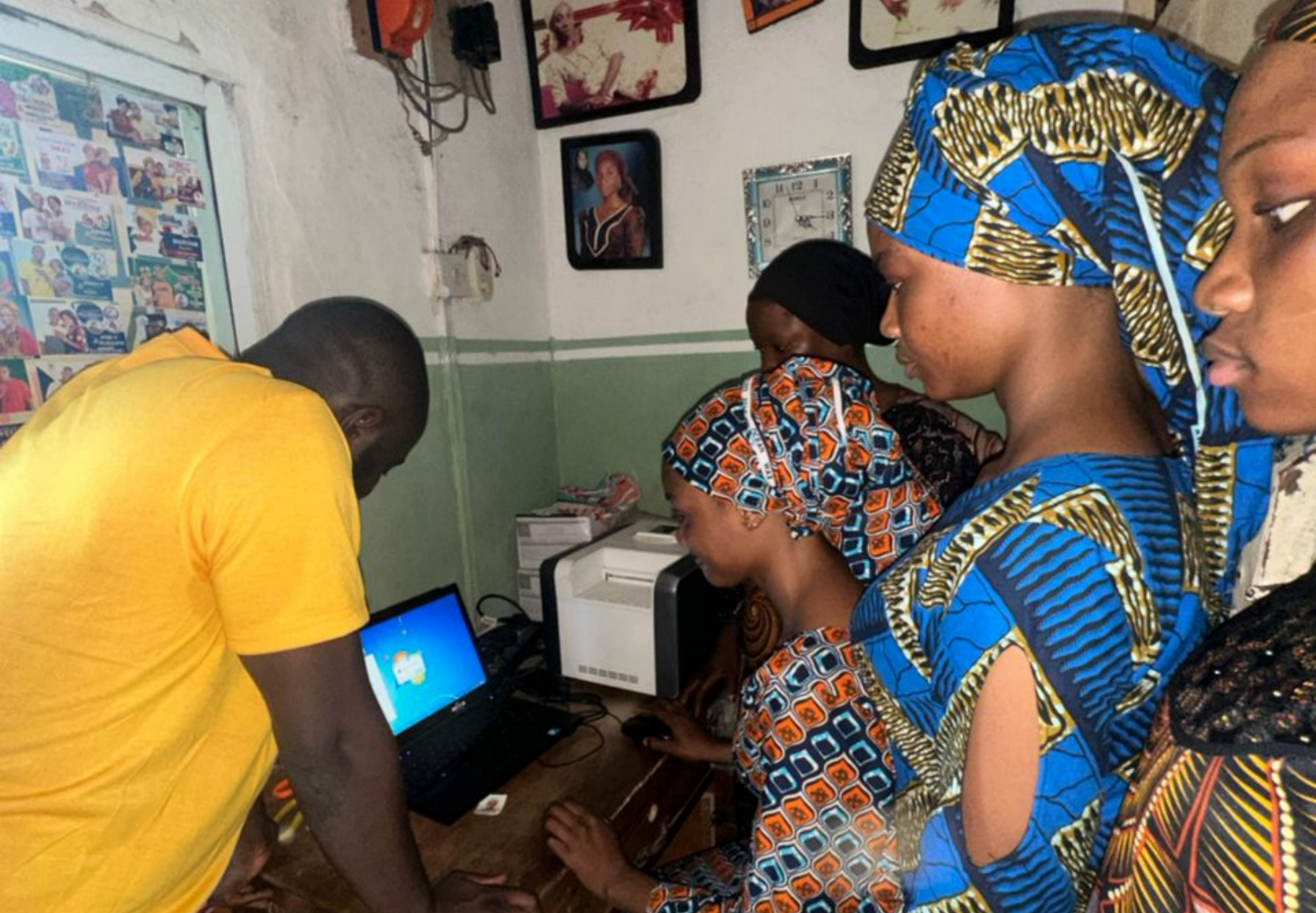Ghana Inspection Report: August 20, 2025
by Saliu Olumide Saheed
I reached Ghana on the 19th of August 2025. I then proceeded to Takoradi to meet the HuMAN partner there. The Takoradi humanist group is led by a very brilliant and vibrant lady, named Esther Gyimah. She received me from the motor pack. From the moment I met her, Esther struck me as a clever woman versatile, articulate, and remarkably knowledgeable woman across many subjects. She is also a natural community organizer, and this skill has made her work of coordinating women within the humanist movement in Takoradi both effective and impactful.
The meeting took place at their internet café, which currently serves as the central hub for the group. During our discussions, Esther narrated the activities of the earlier Takoradi Humanist Group and how the present women’s group evolved to focus more specifically on women’s needs and empowerment. Group members testified to the significant interventions supported by HuMAN over time, such as health outreach programs, the provision of menstrual pads to young women, and vocational skill trainings that Esther, with HuMAN’s help, facilitated at different intervals. These testimonies underscored the group’s importance as both a social and developmental space for women.
Esther also took me on a guided tour of two significant HuMAN-supported projects: the woven clothes local shop and the internet café growth hub. The woven clothes initiative uses traditional wooden equipment to produce locally made fabrics, and it is already proving to be a successful, sustainable, and skill-driven venture. On the other hand, the internet café powered by a fast Starlink internet connection has become a vital growth hub. It is not just a meeting point for the group but also a workspace where women engage in digital work, earn money, and begin building independent careers. I used the internet there and was impressed by its speed and reliability.
However, I also observed a challenge: the café currently has only two laptops, yet the demand for workspace among women is high. Many members expressed the need for more computers to expand the hub’s usefulness. While I understood the concern, I advised against spending all the group’s resources directly on computers, as this could lead to financial strain and loss. Instead, I recommended they consider starting a small printing press business, whose proceeds over two months could be channeled into gradually procuring additional computers for members. This way, the group can grow sustainably without risking its resources.
In terms of knowledge and awareness, I was very impressed by the intellectual depth of the members. Their understanding of humanism was impeccable, and they engaged me with thoughtful questions on complex human rights issues. We spent time learning together on the internet, exploring these issues in detail. It was a stimulating and enriching exchange that highlighted the group’s capacity to absorb knowledge and apply it meaningfully in their advocacy and daily lives.
Lastly, to bring this to an end, I am highly confident that the Takoradi Women Humanist Group holds great promise in advancing the ideals of humanism at the grassroots. They are uniquely positioned to influence women who seek change and no longer want to abide by societal rules and laws that do not favor women. With Esther Gyimah’s leadership and HuMAN’s continued support, this group can become one of the strongest advocates for humanism, equality, and women’s empowerment in Ghana.


